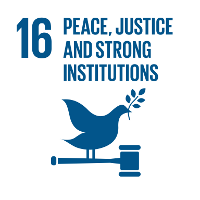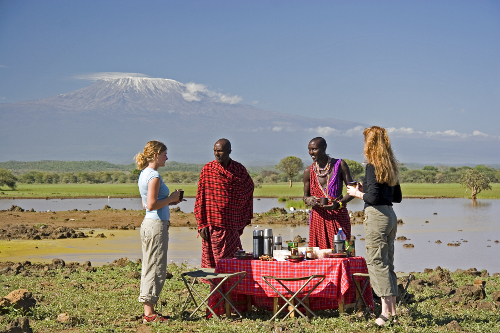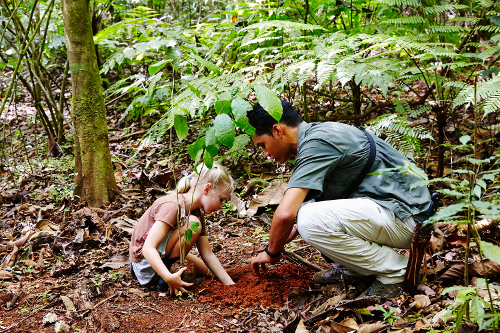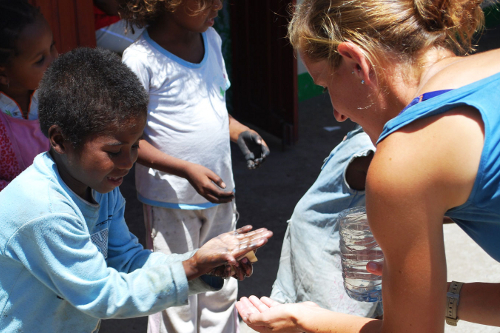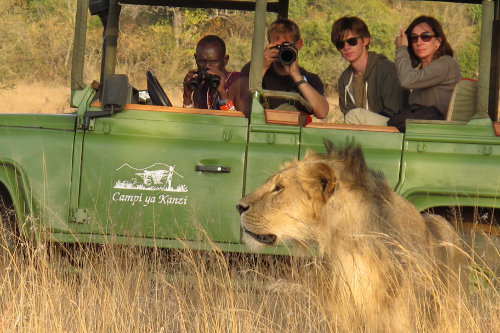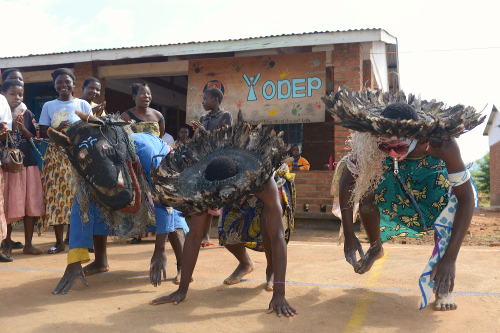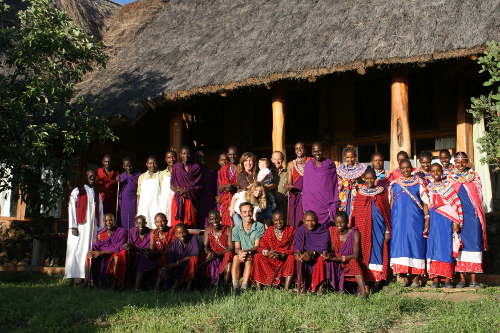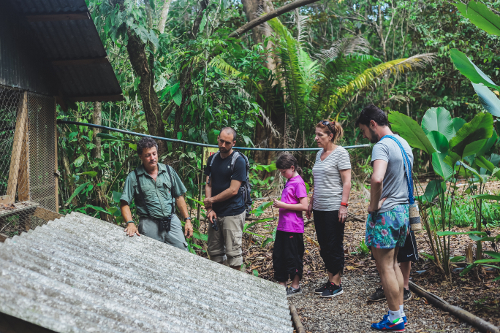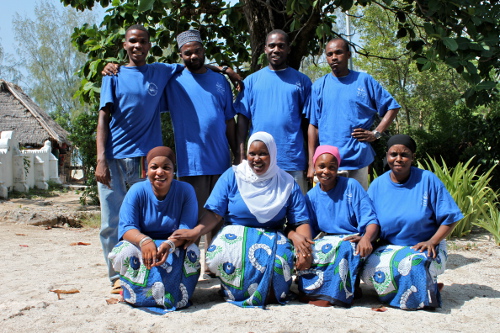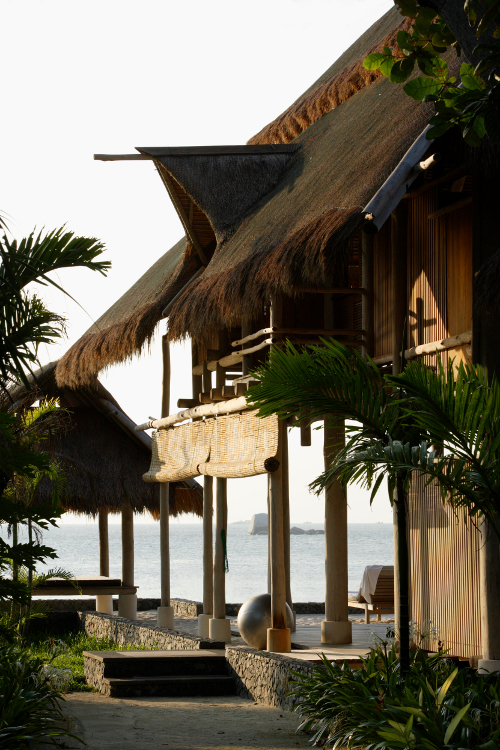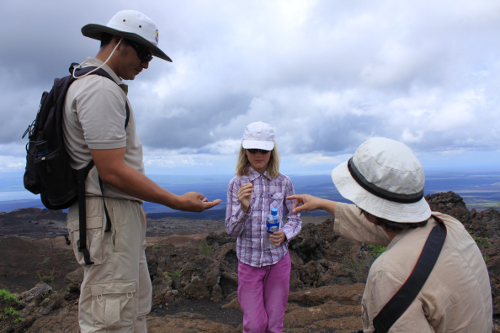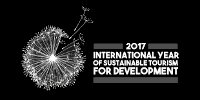Tourism: A global meeting point in an increasingly divided world
Our world is increasingly divided between the have and have nots, peace with prosperity and conflict with violence. High levels of hostility mean a destructive impact on a country, affecting economic growth, the physical environment and social fabric, often for generations of insecurity.
Without a peaceful and inclusive environment, development isn’t sustainable ‘Development that meets the needs of the present without compromising the ability of future generations to meet their own needs’ (UN WCED, aka The Brundtland Report, 1987) – lack of justice doesn’t meet the needs of the present, and may compromise the future. It’s not inevitable and must be addressed. Promoting the rule of law, human rights and good governance are key.
For this reason, Goal 16 of the UN 17 Global Goals of the 2030 Agenda for Sustainable Development is:
SDG #16 “Promote peaceful and inclusive societies for sustainable development, provide access to justice for all and build effective, accountable and inclusive institutions at all levels.”
Progress on Sustainable Development Goal SDG 16 Peace, Justice & Strong Institutions
100 civilians are killed every day in armed conflicts, despite protections under international law, 1 in 8 a woman or child. (2020).
79.5+ million: The number of people fleeing war, persecution and conflict, the highest ever (2020).
440,000 homicide victims (2018): The global homicide rate is 5.8 per 100,000 population, a slow decline on 5.9 in 2015; highest in Latin America and the Caribbean (34%, 2017 vs 27%, 2000), just ahead of sub-Saharan Africa (33%, 2017 vs 25%, 2000).
357 killings and 30 enforced disappearances of human rights defenders, journalists and trade unionists in 47 countries (2019).
1 billion people: legally ‘invisible’ because they cannot prove who they are.
10 million: stateless people who have been denied nationality and its related rights.
1 in 4 children under 5: births were never officially recorded, depriving them of a proof of legal identity, 46% in Sub-Saharan Africa.
28.5 million primary school age children who are out of school live in conflict-affected areas.
9 in 10 children live in countries where corporal punishment is not fully prohibited, leaving 732 million without legal protection.
45 million: Child online sexual abuse reports to National Center for Missing & Exploited Children (2018), up from 1 million in 2014.
1 in 3 students has been bullied by peers at school in the last month, and at least 1 in 10 children have experienced cyberbullying.
50% of the world’s children experience violence every year.
Every 7 minutes, somewhere in the world, a child is killed by violence.
1 in 10 children is sexually abused before the age of 18.
23% of trafficking victims are girls, 7% boys.
1 billion children: experience violence against them, costing societies up to US$ 7 trillion a year.
US$1.26 trillion: The cost of corruption, bribery, theft and tax evasion for developing countries per year; money that could lift those who are living below on the poverty line on less than $1.25 a day above $1.25 for at least six years.
127 countries have adopted right-to-information or freedom of information laws (2020).
49 countries lack laws protecting women from domestic violence.
31% of all prisoners are held in detention without sentencing, almost constant in the last decade.
60% of countries have prison overcrowding, often leading to inhumane conditions, violations of human rights, violence and reduced prospects for rehabilitation.
The Impact of Covid on SDG 16 Peace, Justice & Strong Institutions
Covid-19 threatens global peace and security.
The threat is greater in situations of armed conflict, where fighting has ravaged health systems, displaced people and forced them to live in overcrowded conditions with marginal or no access to basic services.
Overcrowding is accelerating the spread of COVID-19 across jails worldwide due to cramped quarters, and the frequent lack of protective gear and access to adequate health care.
Covid has affected children’s risk of exposure to violence and exploitation due to lockdowns and associated school closures, which have affected the majority of children globally. Some countries have seen a surge in reports of violence at home. In addition, use of the Internet for remote learning may increase children’s exposure to cyberbullying, risky online behaviour and online predators.
Challenges of SDG16, Peace, Justice & Strong Institutions
Child protection is required for violence against children and exploitation. They may be victim to violent forms of discipline, trafficking - a global problem mostly associated with sexual exploitation, but also forced labour; and sexual violence: Urgent actions are needed to advocate for and invest in effective solutions to prevent devastating and lifelong implications.
Birth registration is a first step in a person’s legal recognition, rights and access to social justice, preventing being legally invisible: Children living in urban areas are more likely to be registered than their rural counterparts, with birth registration rates highest amongst the richest 20% of the population.
In human rights, an average of 150 detected trafficking victims per country in 2010 (93 countries) became 254 in 2016 (97 countries), due to its growth and/or growth in reporting. Adult women comprised nearly half of the detected victims globally. While 83% of the females were trafficked for sexual exploitation, including in tourism, forced marriage and/or domestic servitude, 82% of the males were trafficked for forced labour.
By the end of 2018, 39% countries (up from 37% in 2016) were compliant with internationally agreed standards on human rights (the 'Paris Principles'). If growth continues at the same rate, by 2030 only 54% of all countries worldwide will be compliant.
In justice, all should ensure a fair trial within a reasonably short period of time. Prison overcrowding is a serious problem in many countries, often leading to inhumane conditions, the violation of human rights, violence among prisoners and reduced prospects for rehabilitation.
In institutions, among those most affected by corruption are the judiciary and police. At least one bribery payment request was received by over 18% of firms worldwide in 2015; by 25% of firms in low- and lower-middle-income countries, and 4% in high-income countries.
Freedom to information held by public authorities legislation and policies are an integral aspect of freedom of expression and a mechanism to support government openness, accountability and enhance empowerment and equality among all social groups. However, expert assessments suggest the legal framework and provisions for public education on this could be improved, eg. including the right to appeal to an independent administrative body, which has been assessed as key for the proper implementation of this right.
Without such law-based effective governance and strong institutions, the opportunity of sustainable development – and sustainable tourism – is severely hindered.
What’s Peace and Justice got to do with Tourism?
At core, tourism relies on multicultural exchange, tolerance and understanding of – and often proactive interest in – diverse backgrounds. For this, peaceful societies are required.
For this to be sustainable, a viable, maintainable balance is required, without violence and conflict. Sustainable tourism “takes full account of its current and future economic, social and environmental impacts, addressing the needs of visitors, the industry, the environment and host communities" (UNWTO). Responsible tourism, in the words of the Cape Town Declaration (Fabricius and Goodwin, 2002) ), means “making better places for people to live in and better places for people to visit”.
Host communities are a core priority. Tourism that takes responsibility is accountable to engage and benefit local host communities economically, environmentally and socially, such as through employment, landscapes and cultural identity, bringing a level of security which they might otherwise not have had.
At root lie core values of human rights and respect, transparency, legal support and personal freedom, sadly remiss in much mass tourism, thus ultimately unsustainable and irresponsible.
“There are cultural differences, but they’re only a challenge when you want to be ignorant of them. Once you’re aware of any cultural differences, you know the way to go. Cultural difference challenges come down to bad management rather than character: education and sensitive awareness is key.” – Marcus Cotton, Nepal.
Challenges in Tourism for Peace, Inclusion and Justice
Exclusion and exploitation
Too often, tourism decisions have been taken away from host communities, by governments and corporations who put profit first at the expense of the local people and their environment. Corruption occurs in planning and development of infrastructure and environmental standards, with no accountability monitoring. Opaque and inefficient procedures enable opportunities for corrupt officials.
If communities are not key stakeholders in developing tourism in their area, it may disrespect the wishes of locals and lead to their exclusion, both in decision making and physically – such as private developments blocking access to public areas (eg. Jamaica beaches); due to land grabs (eg. after the Boxing Day Tsunami in Sri Lanka), being cut off from local and natural resources (eg. access to water prioritised to tourism developments), or being out-priced and overwhelmed by tourism and ‘Disneyfication’ by tourism corporations and authorities (eg. Venice).
Indigenous peoples and pastoralists have been prevented accessing and grazing their spiritual lands, their rights denied and/or their sacred for sale (for example, years of tourists climbing Ayers Rock, the Aboriginal’s sacred Uluru), or even destroyed (such as by dominant occupying forces like China in Tibet).
Irresponsible tourism leaves locals displaced and disempowered, poor communities left unsupported too often, exploited by institutions, unfair treatment and unscrupulous labour relations with little access to justice, affecting the lives and livelihoods of millions of people.
From construction workers developing resorts in unsafe conditions, to badly paid hotel workers, to bureaucratic ineffective institutions, to corrupt officials and organisations, or the stark contrast of unequal conditions in comparison to tourists, to tourism-created price inflation pushing locals out, tourism has its fair share of injustice which can lead to conflict and crime.
Refugees by politics, economy or even climate change are forced to migrate, creating further instability, insecurity and vulnerability to exploitation.
As a former teacher and Peace Corps volunteer, Karen Lewis witnessed devastating effects on local villages of migration from rural areas to cities for education, training and employment. She set up Lapa Rios in Costa Rica from the outset as a conservation tourism organisation to create jobs and support education as a long-term empowerment tool to retain, sustain and empower the population of the isolated Osa Peninsula.
Vulnerable groups and children are particularly at risk of exploitation, abuse or trafficking where unregulated, unmanaged development of tourism disrupts local economies and societies.
Orphanage tourism has long been exposed as creating child trafficking. Desire by Western tourists to help orphans abroad has created a market demand, only too happily supplied by middlemen able to profit from offering poverty-stricken parents better futures for children, in return for cash, and income-generating ‘orphans’, exploited in intentionally dilapidated conditions. Thankfully improvements are increasingly being seen:
On the ‘supply’ side, governments such as in Cambodia and Nepal are moving to discontinue orphanages. Research has found institutionalized care is harmful to children's development and well-being, and encourage care for genuine orphans with extended family in home communities and culture.
Whilst on the ‘demand’ side, in November 2018, Australia became the first country in the world to recognise and explicitly reference "trafficking and/or exploitation of children in orphanages" in its Modern Slavery Bill. Under the new law, "orphanage trafficking" will be treated as a slavery and trafficking offence, so outlawing its ‘selling’ and promotion.
International NGOs like the Better Care Network, Save The Children and the ReThink Orphanages coalition raise awareness with tourism campaigns such as ‘StopOrphanTrips’ and help tourism organisations extricate themselves from such harmful product offerings.
SEED Madagascar volunteers support children and families in the community with education, health and construction, having applied and been carefully vetted for skills and experience.
Wildlife exploitation and conservation
Wildlife is affected by conflict, corruption, injustice and trafficking too. Rarity leads to poaching, now known to fund arms and terrorism, due to the high value of ivory, rhino horn, tiger and lion bones, turtle shells and other endangered animals, alive or parts.
More often than not, poachers are local people in desperation, who put themselves in danger (both from wildlife and ranger patrols) to gain little of the end sale value. With a good alternative income, they won’t poach – tourism can help here by providing jobs, sustainably - the conservation tourism of key species of course a greater and more sustainable long-term income source than one-off poaching.
Even without poaching, wildlife can damage local people’s capital, resulting in human-wildlife conflict issues.
Conservation means local people not only seeing wildlife as their ongoing economic resource, but also becoming custodians of their long term future for empowerment.
As wildlife is key for tourism at Campi ya Kanzi in Kenya, where the land is a Maasai conservancy, tourists pay a nightly ‘Payment for Ecosystem Services” fee which supports the Maasai community to preserve their critical ecosystem and culture. This includes the Wildlife Pays initiative that compensates the indigenous pastoralists if cattle are killed by predators, so livestock are sustainably managed, rather than wildlife being killed as prevention for livelihood protection.
At the same time, Maasai are trained as guides, rangers and anti-poaching ‘Simba Scouts’, giving income, motivation for wildlife protection and pride in their guardianship of the conservancy.
Tourism as a target
Popular tourism destinations have become the target of terrorism, locations of pleasure seeking in the Western World attacked – concerts, nightclubs, hotels, bars, restaurants, streets, markets, beaches, stadiums and airports for example in France, Belgium, UK, Turkey, Egypt, Spain, the US and many more. An indiscriminate attack can lead to years of depressed tourism for a destination due to the intended perpetrated fear leading to a drop in demand, or in other places quickly forgotten and recovered.
Key historic sites have been damaged or destroyed in armed conflict and wars in areas previously popular for tourism– for example all six World Heritage Sites in Syria, including the ancient citadel or roman ruins in Palmyra, Damascus, and archaeological villages.
Cultural genocide
Deliberate and systematic destruction of cultural heritage is regarded as a form of “cultural genocide”, considered for inclusion in the 2007 United Nations Declaration on the Rights of Indigenous Peoples (as opposed to "ethnocide"): Creating a deprivation of integrity as distinct people, cultural values or ethic identities; a dispossession of lands, territories or resources; a population transfer, violating or undermining rights; or an assimilation or integration by other cultures or ways of life imposed in them.
Under this definition, tourism needs to be carefully responsible to not create cultural genocide itself: Too often excluding host communities leads to the loss of the very essence and soul of a destination. Any local or national undemocratic control or oppression does not lead to peace and just tourism.
Rather, governments and communities can find lasting solutions to conflict and insecurity, and even help rebuild destinations with the support of tourism, creating synergies between local people, places and positive purpose.
Tourism for Peace and Justice
Business can thrive in stable peaceful environments with effective institutions where operating is predictable. Reduced costs and risks - financial, legal and reputational - can come through implementing responsible business practices:
Transparency
Sustainable tourism is transparent and honest: in its policies, impacts and improvements, accounting, contracts and finance, so can lead to more income in a destination to support its people and places, such as in employment, law enforcement and education.
In some countries, this can be a challenge, as corruption has been part of culture and business for a long time, and acts as a barrier to both development and tourism. Our ethical business partners in countries such as Malawi and Madagascar have strong anti-corruption policies, taking responsibility where accountability has often never previously existed.
Inclusivity
Sustainable tourism develops from an open, participatory and inclusive approach, required for locally representative decision-making.
Luca Belpietro and wife Antonella built Campi ya Kanzi Maasai community ecolodge from scratch with the Maasai – with Maasai permission, on Maasai land, physically with Maasai hands of herdsmen taught construction and later tourism and communication skills, given they already knew the land, wildlife, how to live in harmony with nature, and are natural observers and trackers.
The 65 strong Maasai from the local community are the true hosts of the lodge, with an additional 265 working for the linked Maasai Conservation Wilderness Trust - the biggest Maasai employer in the region.
"The communities in which Tiger Mountain Pokhara Lodge is privileged to operate are our stakeholders, vital partners in the business" says Marcus Cotton, Managing Director: 97% of staff have been with them over 8 years, the majority having formed part of the 350 local male and female labourers for its build.
Accountability
Sustainable tourism has clear and effective governance on who makes decisions and how they are held to account.
Progressive
Sustainable tourism also works on a continuous journey of bettering impacts, often using certification and accreditation programs to verify existing operations transparently, be held accountable by an external and objective 3rd party, and help develop areas for improvement through guidelines.
Lapa Rios was the first ecolodge to gain the coveted 5 Leaf Rating of Costa Rica’s Sustainable Tourism Certification scheme, “an on-going, laborious, time- and patience- consuming, costly and unending process. It requires total honesty of past and present actions, to accept that improvement is possible and to determine what that should be, plus a commitment and cooperation of management, staff and even non-associated local people” - Co-founder, Karen Lewis.
The lodge now takes great pride in transparently showing guests the ‘back of the house’ systems and operations to demonstrate and teach about their sustainability, with suggestions how guests’ own ways of living could be enhanced – in fact, it’s their most popular tour!
Respectful
Sustainable tourism treats people responsibly, with humanity and respect.
Tiger Mountain Pokhara Lodge’s staff loyalty is supported by their great benefits and career development opportunities, going far above and beyond any Nepali legislative requirements. Staff are actively recruited from the local community, women and individuals from disadvantaged groups are actively sought, work equally, share tips equally, have free board and lodging, paid monthly, even in advance for those in need during festivals (the requirement is 6 monthly in arrears), with a bonus of one-month’s pay at Nepal’s major festival. Guests are taught about the local community, and reminded not to give sweets, or take photos without permission.
Equality
Includes gender,
“The achievement of full human potential and of sustainable development is not possible if one half of humanity continues to be denied its full human rights and opportunities” — The 2030 Agenda for Sustainable Development.
There cannot be sustainable development if there is no equality and empowerment of women, integral to every sustainable development goal.
Women’s empowerment is a precondition to solving poverty, resource issues and peace, but will require strong institutions, and legal frameworks for inclusion and justice.
At Chumbe Island Coral Park, women are strongly supported to bring gender equality, and currently form 40% of the workforce.
Conscious
Sustainable tourism works for a sustainable supply chain, supporting organisations that equally take a responsible approach, in an ecosystem to benefit the local community, and help end poverty at the same time as providing guests with local and fresh, organic produce.
Lapa Rios support local suppliers of regional culture: food, renewable plant/tree growers, and indigenous artists. They verify supply chain distributors, for example for environmental standards such as no plastic wrap and packaging, willing to use recyclable containers and cooperate with single stop delivery, endorse and promote certified organic produce, biodegradable products.
Nikoi Island in Indonesia buys almost all supplies through local markets and small traders and has also helped establish local businesses, such as car hire and an alang-alang (ylang ylang) supplier for grass roofs.
Honest
Sustainable tourism doesn’t turn a blind eye, but openly rejects and reports exploitation, abuse, corruption or bribery, speaking up for decency, justice and freedom.
At Tiger Mountain Pokhara Lodge, there’s a “zero tolerance” approach to all forms of abuse, discrimination, bribery or inappropriate behaviour; no government officials are entertained at company expense; and the Lodge follows the regulations in the Nepal Labour Act with regard to employment of young people on training / experience placements.
Corruption makes transaction costs uncertain, clear budgeting and planning impossible, marketing inefficient, compliance with human rights, laws and other obligations challenging, creating tensions and instability in society.
ECPAT International was created in 1990 as a campaign, “End Child Prostitution in Asian Tourism”. Becoming an NGO to address what was obviously a global problem, it changed its name to “End Child Prostitution, Child Pornography and Trafficking in Children” for sexual purposes and is the only internationally recognized organization that focuses exclusively on the commercial sexual exploitation of children. It ensures support for victims, conducts public information campaigns, works with governments to help children at risk and encourages international cooperation of law enforcement agencies to prosecute sexual crimes against children committed by foreigners abroad through extraterritorial legislation.
More than 1000 companies worldwide have signed their "Code of Conduct”, raising awareness of tourism professionals to the prevention and detection of child sexual exploitation.
Whether you are a traveller, a tourist, a professional in the tourism sector or just someone concerned about this issue, every one of us can take action to combat child sexual exploitation in tourism. The “I say stop” campaign raises awareness on what you can do to help reporting, acting, providing support, relaying information, making a donation,
Sustainable tourism offers equal access to accurate and unbiased information, be it to hosts or tourists, imagery or text, and the right to participate in the tourism process.
Jascivan Carvelho helped create the first community-based tourism in The Galapagos, “where the community owns the private enterprise in the community territory, allied with an operator to take care of marketing and partly of sustainable operations”.
He knows the “best possible associative model with a realistic business vision” in the market is key for a truly sustainable tourism organisation,
“we need to act in the most professional manner possible, between us as an operator, the community as host, and customers, to whom we explain exactly how to act within the community: We prepare all parties for a spectacular experience together”.
Sustainable tourism learns from the past to help create ‘better places to live in and visit’ for the future. This may even incorporate respectful 'Dark Tourism' (involving travel to places historically associated with death and tragedy), important to revealing past errors of (lack of) humanity, such as found in Robben Island and District Six in post-apartheid South Africa, The Killing Fields and Tuol Sleng Genocide Museum in Cambodia, or Auschwitz concentration camp in Poland.
Peace for Thriving Tourism
The International Institute For Peace Through Tourism (IIPT) is a not for profit organization dedicated to fostering and facilitating tourism initiatives which contribute to international understanding and cooperation, an improved quality of environment, the preservation of heritage, and through these initiatives, helping to bring about a peaceful and sustainable world. It is based on a vision of travel and tourism, the world's largest industry, becoming the world's first global peace industry; and the belief that every traveller is potentially an "Ambassador for Peace”.
Another non-profit organisation, Peace One Day set up by actor-film maker Jeremy Gilley, aims to institutionalise a day of global unity and intercultural cooperation on a scale that humanity has never known. Unanimously adopted by the member states of the United Nations as the first ever annual day of global ceasefire and non-violence in 2001, Peace Day is celebrated annually on 21 September.
Responsible tourism can make significant meaningful contributions to lasting peace, development, prosperity and business success.
Links with the other Sustainable Development Goals
Peaceful, inclusive and just societies are required for sustainable development and inter-relates strongly with...
Goal 1 - End Poverty: Unjust corruption, bribery, theft, tax evasion and exploitation comes at the cost of sustainable development.
Goal 2 - Zero hunger: Tourism operations inclusive of local suppliers support local food production. Ending hunger could also see exploitation through poaching and orphanage tourism hindered.
Goal 3 - Health & Well Being: Exclusion, injustice and conflict may lead to exploitation and ill health through stress and injury.
Goal 4 - Quality Education: Unstable societies and exploitation reduce countries’ educational levels and access, leading to rural brain drain, and even less stability.
Goal 5 - Gender Equality: If half of humanity continues to be denied its full human rights and opportunities, there cannot be sustainable development. All forms of violence against the female gender must also be eliminated.
Goal 6 - Sustainable Water and Sanitation is vital for a sustainable community. Water scarcity drives conflict and migration.
Goal 7 – Without access to affordable, reliable, sustainable and modern energy, people experience energy poverty and injustice, for household electricity and clean cooking, ill health and hindered education.
Goal 8 - Economic growth & productive employment isn’t possible without community inclusivity and with child labour.
Goal 9 - Conflict hinders creativity. Tourism can support development with infrastructure, sustainable industrialization and innovation . Travel, the ‘world's largest industry’, is best placed to connect globally for peace.
Goal 10 – Global inequality and growing disparities are not just. The causes for those who need most inclusive support are usually unjust.
Goal 11 – Inclusivity in cities and human settlements is required for safety and resilience.
Goal 12 - Sustainable consumption and production can be supported by supply chains inclusive of local business.
Goal 13 - Climate Change – injustice: those who suffer most impacts are the least responsible. Strong governance and institutions are required to support collective rights and responsibilities.
Goal 14 - Life below Water – coastal communities, habitats and livelihoods are strongly affected by marine ecosystems’ pollution, unjustly created often half a world away.
Goal 15 – Life on Land - conflict harms conservation. Peace is required for protection, restoration and sustainable use of terrestrial ecosystems. Poaching feeds and funds arms, terrorism and conflict.
Goal 17 - Partnerships - no man nor community is an island. We all form an ecosystem of support required for peace.
< Conservation / Life on Land SDG15: Previous
